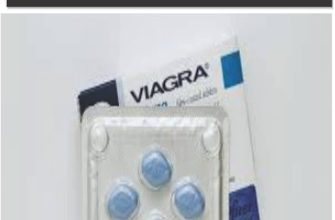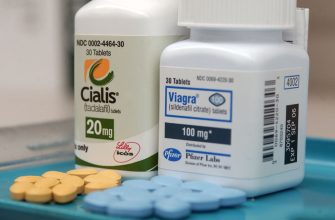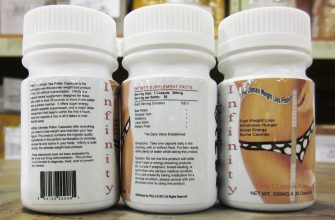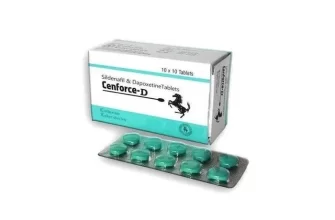Levitra generally works faster than Viagra, with effects often noticeable within 25-60 minutes compared to Viagra’s 30-60 minute onset. This speed difference might be a significant factor for some men.
However, Viagra’s effects tend to last longer–up to four hours versus Levitra’s four to five hours. This extended duration could be preferable for individuals with varying schedules or preferences. Both medications have similar efficacy rates, meaning they’re both effective for a large percentage of men with erectile dysfunction.
The best choice depends on individual factors like the speed of effect needed and the duration of effect desired. Consider consulting your doctor to determine which medication aligns best with your specific needs and health profile. They can help you weigh the pros and cons and ensure safe usage.
Remember: This information should not replace professional medical advice. Always consult a healthcare provider before starting any new medication.
- Is Viagra or Levitra Stronger? A Detailed Comparison
- Onset and Duration
- Metabolic Differences
- Side Effects
- Dosage and Individual Response
- Choosing the Right Medication
- Specific Considerations
- Understanding Viagra’s Mechanism of Action
- Levitra’s Mechanism and How it Differs from Viagra
- Key Differences in Action
- Metabolic Differences
- Comparing Onset and Duration of Effects: Viagra vs. Levitra
- Viagra’s Duration
- Levitra’s Duration
- Effectiveness Rates: Head-to-Head Comparison of Viagra and Levitra
- Factors Influencing Success Rates
- Comparative Data
- Choosing the Right Medication
- Side Effect Profiles: A Detailed Look at Potential Differences
- Drug Interactions: Key Considerations for Viagra and Levitra
- Nitrates: A Serious Interaction
- Alpha-Blockers: Potential Blood Pressure Effects
- Other Notable Interactions
- Grapefruit Juice: A Common Culprit
- Alcohol: Moderation is Key
- Which is Right for You? Factors to Consider When Choosing
- Consulting Your Doctor: The Importance of Personalized Advice
- Factors Influencing Medication Choice
- Understanding Your Options
- Monitoring Treatment Effectiveness
Is Viagra or Levitra Stronger? A Detailed Comparison
Neither Viagra (sildenafil) nor Levitra (vardenafil) is definitively “stronger.” Their effectiveness varies significantly depending on individual factors. Both drugs work by inhibiting PDE5, increasing blood flow to the penis, but they differ in onset, duration, and potential side effects.
Onset and Duration
Levitra generally acts faster, often producing effects within 15-60 minutes, compared to Viagra’s 30-120 minute timeframe. However, Levitra’s effects typically last slightly less long than Viagra’s.
Metabolic Differences
A key difference lies in their metabolism. Levitra is metabolized primarily by CYP3A4, while Viagra involves CYP3A4 and CYP2C9. This means interactions with other medications can differ. For example, grapefruit juice strongly inhibits CYP3A4, potentially increasing Levitra’s effects but having a less pronounced effect on Viagra. Consult your doctor about potential drug interactions.
Side Effects
Both medications share similar side effects, including headache, flushing, nasal congestion, and visual disturbances. However, the frequency and intensity of these can vary. Levitra may slightly more often cause nasal congestion than Viagra. Always discuss any side effects with your physician.
Dosage and Individual Response
Dosage adjustments are common. Starting doses and maximum dosages differ between Levitra and Viagra. Individual responses vary widely, meaning what works well for one person might not be as effective for another. Your doctor will help determine the best medication and dosage based on your medical history and needs. Open communication with your doctor is paramount.
Choosing the Right Medication
The “better” medication depends entirely on your individual needs and response. Factors such as the speed of onset, duration of effect, potential side effects, and interaction with other medications should be considered. A thorough discussion with your physician is crucial for determining which medication is most suitable for you.
Specific Considerations
High-fat meals can delay the onset of both Viagra and Levitra. Alcohol can also affect both medications’ effectiveness. Discuss your lifestyle habits with your doctor.
Understanding Viagra’s Mechanism of Action
Viagra, or sildenafil, primarily works by inhibiting an enzyme called phosphodiesterase-5 (PDE5).
This enzyme breaks down cyclic guanosine monophosphate (cGMP), a crucial molecule for penile erection. By blocking PDE5, Viagra allows cGMP levels to rise.
- Increased cGMP relaxes the smooth muscles in the blood vessels of the penis.
- This relaxation increases blood flow into the penis.
- The increased blood flow causes an erection.
Importantly, sexual stimulation is still required for Viagra to be effective. Viagra doesn’t directly cause erections; it enhances the body’s natural response to sexual stimulation.
The effects of Viagra typically last for four to five hours. The precise duration varies depending on individual factors such as metabolism and dosage.
- Your doctor will determine the appropriate dose for your needs.
- Always follow your doctor’s instructions carefully.
- Do not exceed the recommended dosage.
Remember, Viagra interacts with certain medications. Discuss all your current medications with your doctor before taking Viagra.
Levitra’s Mechanism and How it Differs from Viagra
Levitra, or vardenafil, works by inhibiting phosphodiesterase-5 (PDE5), an enzyme that breaks down cyclic GMP. This allows increased blood flow to the penis, facilitating an erection. Viagra, or sildenafil, also inhibits PDE5, achieving a similar outcome.
Key Differences in Action
The primary difference lies in the selectivity and potency of PDE5 inhibition. Levitra shows a higher selectivity for PDE5 compared to Viagra, potentially leading to fewer side effects in some individuals. It also demonstrates a faster onset of action in many users, with effects sometimes noticeable within 15-25 minutes, compared to Viagra’s typical 30-60 minute timeframe. The duration of action also varies; Levitra’s effects typically last 4-5 hours, whereas Viagra’s can extend to 4-8 hours.
Metabolic Differences
Levitra’s metabolism differs slightly from Viagra’s. This impacts how quickly it’s processed by the liver and subsequently cleared from the body. This variation can affect both the onset and duration of action, as well as potential drug interactions with other medications. Consult your physician to discuss potential interactions before using either medication.
Comparing Onset and Duration of Effects: Viagra vs. Levitra
Viagra generally takes 30-60 minutes to become effective, while Levitra’s onset is typically 25-60 minutes. However, both medications can work faster if taken on an empty stomach. Individual responses vary, so these are just average times.
Viagra’s Duration
Viagra’s effects usually last for around 4 hours. This timeframe allows for multiple instances of sexual activity within that window.
Levitra’s Duration
Levitra’s duration is slightly longer, typically lasting up to 5 hours. This longer duration provides a potentially more extended period of effectiveness compared to Viagra.
Ultimately, the best medication for you depends on individual factors and your preferences. Consulting a healthcare provider is recommended to discuss your specific needs and determine which medication is most suitable.
Effectiveness Rates: Head-to-Head Comparison of Viagra and Levitra
Both Viagra (sildenafil) and Levitra (vardenafil) successfully treat erectile dysfunction (ED) in a significant portion of men. However, their success rates vary slightly. Clinical trials show Viagra achieves successful intercourse in approximately 70% of men, while Levitra boasts a similar rate, around 60-70%, depending on the dosage and individual factors.
Factors Influencing Success Rates
Several factors influence these percentages. Dosage plays a key role; higher dosages generally correlate with higher success, but also carry a greater risk of side effects. Individual health conditions, age, and the severity of ED all affect response rates. Lifestyle choices, such as smoking and alcohol consumption, can also impact treatment efficacy.
Comparative Data
| Factor | Viagra (sildenafil) | Levitra (vardenafil) |
|---|---|---|
| Onset of Action | 30-60 minutes | 25-60 minutes |
| Duration of Action | 4-5 hours | 4-5 hours |
| Reported Success Rate | ~70% | 60-70% |
| Most Common Side Effects | Headache, flushing, nasal congestion | Headache, flushing, nasal congestion, dyspepsia |
Choosing the Right Medication
The choice between Viagra and Levitra often comes down to individual factors and tolerance. Some men find one medication works better than the other, or experience fewer side effects with one. A consultation with a doctor is crucial for determining the best medication and dosage for your specific needs. They can assess your health history, discuss potential interactions with other medications, and help you make an informed decision.
Side Effect Profiles: A Detailed Look at Potential Differences
Both Viagra (sildenafil) and Levitra (vardenafil) share some common side effects, but their frequency and severity can vary.
Headache is a frequent side effect for both, though Levitra users sometimes report it more often. Facial flushing (redness) also occurs commonly with both medications.
- Viagra: Nasal congestion is more prevalent with Viagra. Visual disturbances, such as changes in color vision, are also reported more frequently.
- Levitra: Dizziness and indigestion are reported more frequently with Levitra than Viagra. Back pain is another relatively common side effect.
Less common, but potentially serious side effects exist for both. These include:
- Priapism (prolonged erection): Seek immediate medical attention if an erection lasts longer than four hours. This is rare but serious.
- Sudden vision loss or hearing loss: These are rare but warrant immediate medical consultation.
- Heart problems: Men with pre-existing heart conditions should discuss these medications thoroughly with their doctor.
The best way to understand potential side effects is to discuss your medical history with your doctor before starting either Viagra or Levitra. They can help determine which medication, if any, is best suited for your individual needs and health profile, considering potential benefits and risks.
- Discuss your medical history completely. This includes current medications, allergies, and pre-existing conditions.
- Ask specific questions about potential side effects relevant to your health.
- Follow your doctor’s instructions carefully regarding dosage and usage.
Remember, this information is not a substitute for professional medical advice. Always consult your physician before starting any new medication.
Drug Interactions: Key Considerations for Viagra and Levitra
Both Viagra (sildenafil) and Levitra (vardenafil) interact with several medications. Always inform your doctor about all medications you are taking, including over-the-counter drugs, herbal supplements, and recreational drugs. This is crucial for safe and effective treatment.
Nitrates: A Serious Interaction
Combining either Viagra or Levitra with nitrates (found in medications for chest pain) can cause a dangerous drop in blood pressure. This combination is strictly contraindicated. Discuss any nitrate use with your doctor before starting either medication.
Alpha-Blockers: Potential Blood Pressure Effects
Alpha-blockers, often prescribed for high blood pressure or prostate problems, can interact with Viagra and Levitra, potentially leading to low blood pressure, especially when starting treatment. Your doctor may adjust your dosage or recommend monitoring your blood pressure.
Other Notable Interactions
Several other medications may interact with Viagra and Levitra, including:
| Medication Class | Potential Interaction |
|---|---|
| CYP3A4 Inhibitors (e.g., ketoconazole, erythromycin) | Increased Viagra/Levitra levels, potentially leading to side effects. Your doctor might adjust dosage. |
| CYP3A4 Inducers (e.g., rifampin, St. John’s Wort) | Decreased Viagra/Levitra levels, reducing effectiveness. Dosage adjustments may be necessary. |
| Other PDE5 Inhibitors (e.g., Cialis) | Taking multiple PDE5 inhibitors simultaneously is unsafe and strongly discouraged. |
Grapefruit Juice: A Common Culprit
Grapefruit juice inhibits CYP3A4, an enzyme that metabolizes Viagra and Levitra. Avoid grapefruit juice while taking these medications to prevent increased drug levels and potential side effects.
Alcohol: Moderation is Key
Excessive alcohol consumption can exacerbate side effects of Viagra and Levitra, such as dizziness and headache. Moderate alcohol intake is recommended. Always consult your doctor if you have concerns about alcohol and your medication.
Which is Right for You? Factors to Consider When Choosing
Start with a conversation with your doctor. They can assess your overall health and medical history to determine the best medication for you. This includes considering any pre-existing conditions like heart problems or liver disease, which can influence drug interaction and effectiveness.
Consider your individual response. Viagra and Levitra have different onset times and durations of action. Viagra typically takes effect within 30-60 minutes and lasts for 4-5 hours, while Levitra’s onset is faster, around 25 minutes, but its effects might be shorter, lasting 4-6 hours. Your doctor can help you determine which timeframe aligns best with your needs.
Side effects vary between individuals and medications. Common side effects for both include headache, flushing, and nasal congestion. However, the frequency and severity differ. Discuss potential side effects with your doctor and carefully weigh them against the benefits. They can advise you on managing any side effects you may experience.
Think about cost. Generic versions of both medications are available, potentially reducing the overall cost. Your insurance coverage will also play a part in the final price. Discuss cost factors with your doctor or pharmacist to make an informed decision that fits your budget.
Drug interactions are a critical factor. Both Viagra and Levitra interact with certain medications. Your doctor needs a complete list of your current medications, including over-the-counter drugs and supplements, to minimize potential risks.
Remember, this information should not replace professional medical advice. Consult your doctor before making a decision about which medication is best for you.
Consulting Your Doctor: The Importance of Personalized Advice
Schedule a consultation. Don’t self-medicate. Your doctor will assess your overall health, including any existing conditions like heart problems or high blood pressure, which significantly impact medication choices.
Factors Influencing Medication Choice
- Medical history: Your doctor needs a complete picture of your health. Provide details about allergies, current medications, and past illnesses.
- Lifestyle factors: Smoking, alcohol consumption, and diet influence drug effectiveness and potential side effects. Be open and honest.
- Other medications: Interactions between Viagra, Levitra, and other drugs you take can be dangerous. Complete disclosure is crucial for safety.
Your doctor will discuss the pros and cons of each medication, considering your specific situation. They might recommend blood tests to check your liver and kidney function, vital for safe medication use.
Understanding Your Options
- Dosage: The right dose varies greatly. Your doctor will prescribe the appropriate starting dose and adjust as needed based on your response and tolerance.
- Side effects: Both Viagra and Levitra have potential side effects, ranging from mild to serious. Your doctor will help you understand and manage these risks.
- Cost and insurance: Discuss cost and insurance coverage early in the process. This ensures you understand the financial implications before beginning treatment.
Remember, open communication is key. Ask questions. Clarify any uncertainties. Your doctor’s personalized advice is the safest and most effective path to finding the right treatment for you.
Monitoring Treatment Effectiveness
Regular follow-up appointments allow your doctor to monitor your progress, adjust medication as needed, and address any concerns. This ongoing care is crucial for long-term health and well-being.







